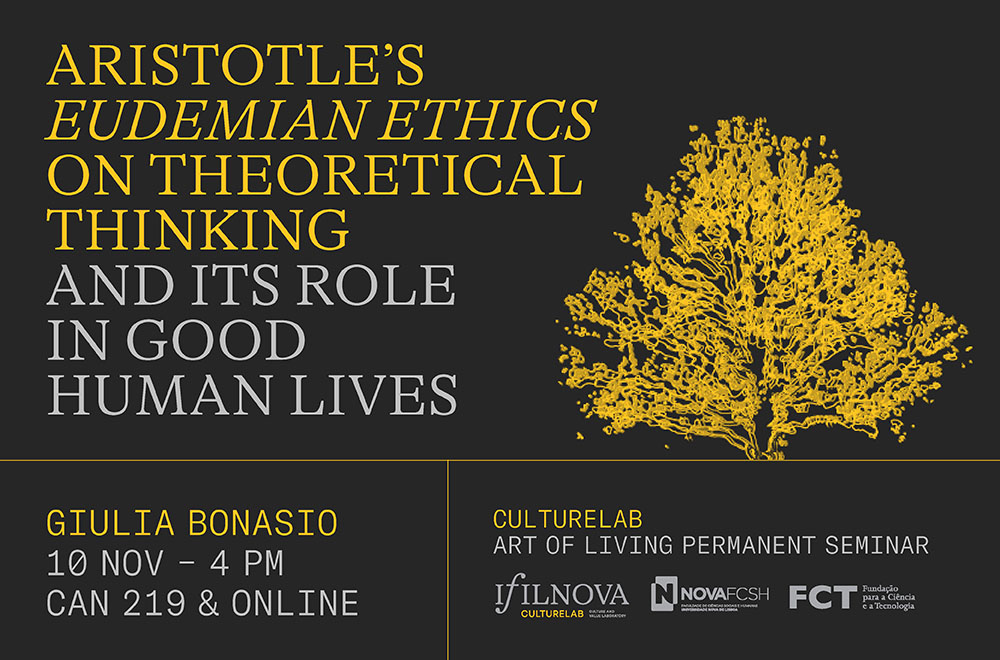Giulia Bonasio

As they are described in Aristotle’s Nicomachean Ethics (NE) X.7-8, the virtues of theoretical thinking seem to have no role at all in practice. Scholars often argue that the virtues of theoretical thinking concern contemplation and knowledge for their own sake, and are not useful for practical purposes. They argue that the contemplator does not necessarily need to be moral. This approach is in line with the distinction of happiness in two kinds that Aristotle offers at NE X.7-8. However, this division of happiness in two kinds is absent from the Eudemian Ethics (EE). In this paper, I show that in the EE, there is a deeper interaction among the virtues of theoretical thinking and the virtues of practical thinking than what we find in the NE. Namely, the virtues of theoretical thinking need to be possessed and they need to interact with the virtues of practical thinking in order for agents to live a happy life.
Bio
Dr. Giulia Bonasio is Assistant Professor in Classics (Ancient Philosophy) in the Department of Classics and Ancient History at Durham University. She specialises in ancient philosophy and in particular in Aristotle’s ethics. With her work, she aims to investigate how ancient ethics can generate new ideas for contemporary debates in ethics, epistemology, and moral psychology. More generally, she is interested in how ancient ethics can contribute to modern challenges. Dr. Bonasio is currently ZAZH-Guest Professor in the Classics Department at the University of Zürich and Senior Fellow at the Collegium Helveticum.
To participate in the session via Zoom, use this link.

